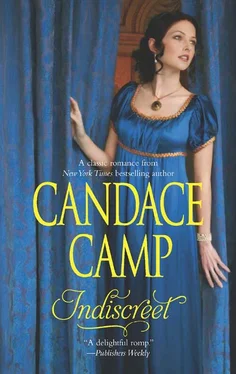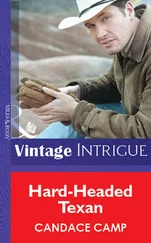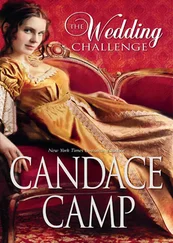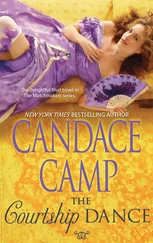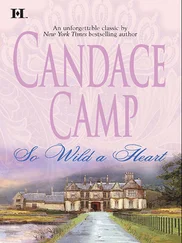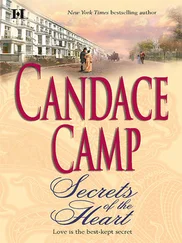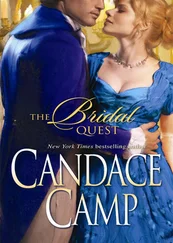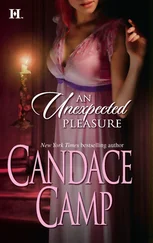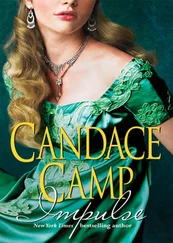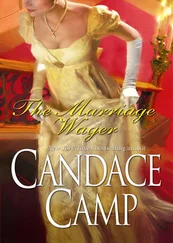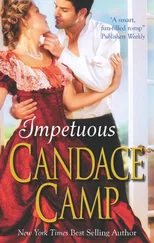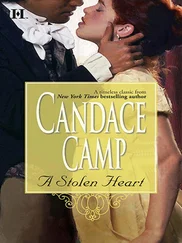Then, off to her right, she saw a movement, and she jumped, startled, letting out a squeak of surprise. She held her lantern higher and peered into the night. It was a man standing beside a small tree, almost hidden by its branches.
“Sir!” she exclaimed, letting go of the horse’s head and starting toward him eagerly. “Sir, can you help me? I fear we are lost, and—”
The man whirled toward her, frowning fiercely, his face pale in the dark. There was a long-barreled pistol in his hand. “Hush!” he hissed. “Do you want to get us all killed?”
At that moment, her lantern exploded in her hand, the explosion accompanied by a loud pop. The horses whinnied and danced nervously. The lantern, torn from her grasp, hit the ground and went out, plunging her into complete darkness. Camilla screamed and turned to run back to the carriage.
But before she could take a step, the man launched himself across the space separating them and rammed into her with all his weight, sending them both tumbling to the ground. Camilla hit the earth hard, the breath knocked from her. The stranger lay sprawled atop her, his weight pressing her into the ground. Camilla struggled to get out from under him, gasping for air.
“Stop squirming, dammit!” he growled, pinning her to the ground. “They’re firing at us. Silly chit, do you want to be killed?”
It was then that she realized what that pop had been and why the lantern had shattered. Someone had shot at her! She realized, too, that she had heard more pops as the man drove her to the ground. Camilla went limp with shock.
There were shouts in the distance, but no more bangs. Nearer to them, the horses, upset by the shots, were whinnying and dancing about, tossing their heads. The coachman, cursing, was struggling to control them.
The stranger lifted his head and looked behind them. Camilla stared up at him. His face was fierce and dark, all sharp angles and jutting cheekbones and black, slanting eyebrows. He looked, she thought, quite dangerous, and instinctively she was certain that it was he the others had been shooting at.
“Bloody hell!” He rasped the words out. “I think they’re coming after us.”
“What?” Her voice rose sharply. “What is going on?”
He shook his head and rose to a crouch. Before she realized what he was going to do, he had grasped her upper arms with hands of steel and jerked her to her feet, rising with her.
“Run!” he ordered, and with the word, he ran to the coach, dragging her along with him.
“Let go of me!” Camilla tried to wrest her arm away from him, but he was too strong.
There were two more gunshots behind them, and Camilla heard something splat into the side of the chaise. Her companion jerked open the door of the coach and tossed her up into it. Camilla screamed again as she hit the floor, and the carriage jerked and took off, the coachman apparently unable to hold the frightened horses any longer.
The stranger was clinging to the door. She thought he meant to crawl inside, too, but then, to her amazement, he grasped something on the roof of the carriage and used the door as a stepping-stone to climb onto the top of it.
“Watch out!” she shouted to the driver, and she heard the coachman’s shout of surprise and the sound of a struggle, then the thud of a body—undoubtedly the poor coachman’s—falling to the seat.
The coach gathered speed quickly, the horses panicked and with the bits between their teeth. The vehicle rocked and bounced along the rough path. Camilla grabbed hold of the seat, afraid that she would go sliding out the open door when the carriage tilted that way.
There were more shots, and she realized that they were hurtling straight toward the men who were firing upon them. She had a glimpse of dark shapes that resolved themselves into men and ponies. Suddenly a large man jumped out of the darkness, grabbing the door and swinging his feet up into the carriage. Camilla shrieked and scrambled away from him. As she did so, her flailing hand landed on her umbrella, lying there on the floor.
She picked it up and swung it hard at the man, cracking him on the shins. He let out a howl, and she gave him a hard poke in the stomach with the tip of the umbrella. He let out another cry of pain, and his fingers slipped on the door. He fell backward out of the carriage.
Camilla sat down on the seat, grasping the strap on the wall for purchase. With the other hand, she held her umbrella at the ready, keeping a sharp lookout for any other intruders. They tore along at a reckless speed, the door of the carriage swinging back and forth, the carriage jouncing wildly over the rutted track. Camilla was certain that they were going to overturn at any moment. It was raining in earnest now, too, and rain was slanting in through the open door.
She realized after a while that they were slowing down to a more sedate pace, and after a moment, she slid across the seat and grabbed the door as it swung back toward the carriage and pulled it firmly shut. She looked with distaste at the puddle of water that had formed on the floor, but there was little she could do about that. She could, however, remove her soaked mantle, the back of which, she discovered, was thoroughly smeared with mud from when the stranger had thrown her to the ground.
The stranger. Her eyes narrowed as her thoughts turned toward that man. Who was he, and what had he been up to out here in the wilds of the Dorset coast? He was up to no good, she was sure. Those men had been shooting at him, and, now that she thought about it, it was obvious that he had been hiding behind that tree—no doubt lying in wait for someone. It was no wonder he had looked at her with such fury when she called to him; she had broadcast his presence to the other men, giving them a chance to protect themselves. She wondered if he was a highwayman, or merely some ruffian looking to attack one of his enemies.
Of course, she mused, given where they were, it just might have something to do with “the gentlemen”—the name, uttered only in lowered voices, given to the men engaged in the age-old occupation of smuggling. Everyone knew about it, and, if truth be known, many an upstanding local citizen, even among the magistrates and judges, was known to turn a blind eye to the illegal trade. Indeed, many of them had a regular delivery of French brandy waiting on their back doorsteps in the early-morning light after a moonless night. There were those who, hating the duty laws, considered “the gentlemen” within their rights in evading the laws. The people of the outlying coastal areas were often known to resent the intrusion of the central government in what they considered their business. In the previous century, the smugglers had been so strong that there were even pitched battles between the Hawkridge gang and the soldiers. Though those lawless times had passed, the business of smuggling went on, especially now, with coveted French goods cut off from England by the war.
Camilla thought back to the man, remembering his face as he had loomed above her in the dark—the fierce upward slash of cheekbones and the hard mouth, the dark eyes beneath peaked black eyebrows, the dark, rough clothes. Yes, she decided, he had definitely looked as if he might be a smuggler, at odds with his fellows, or a highwayman looking to rob a traveler, or simply a ruffian seeking revenge upon someone. Whatever he was, she was certain that she was not in a safe position. She had seen him where he had not wanted to be seen, and she had been the unwitting cause of the other men shooting at him and chasing him. He had been furious with her earlier, and she had little doubt that he still was. This rough ride in the post chaise might be nothing compared to what happened when the vehicle stopped.
Which it was doing right now. Camilla could feel the chaise slowing down. In a moment, she knew, it would rock to a halt, and then he would jump down and come back here and open the door. He would pull her out and— Well, she was not sure what he would do, but she had no trouble imagining him doing anything from hitting her to strangling her, including the despoiling that old women always warned of in lowered voices to girls who were rash enough to go out unaccompanied.
Читать дальше
